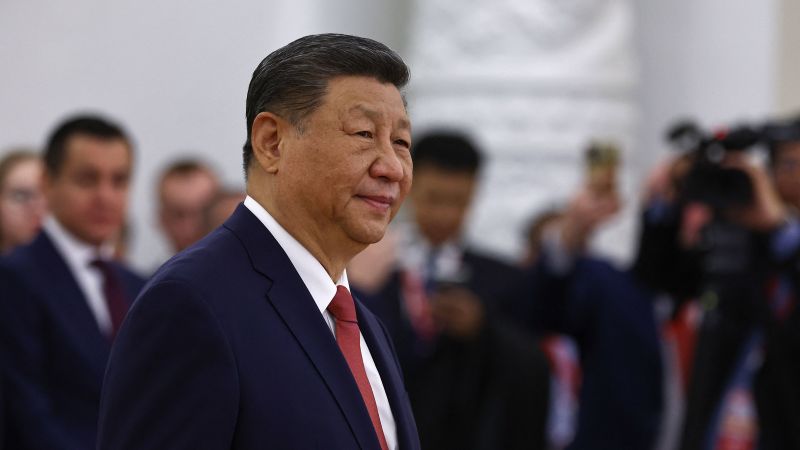
A summit of leaders from the BRICS group of major emerging economies kicks off in Brazil on Sunday, but notably absent is Xi Jinping, the leader of its most powerful member, China. This marks the first time in over a decade that Xi will not attend the annual leaders’ gathering. His absence comes at a crucial moment for BRICS, a coalition originally comprising Brazil, Russia, India, China, and South Africa, which has recently expanded to include Egypt, the United Arab Emirates, Ethiopia, Indonesia, and Iran.
The timing of Xi’s decision not to attend the two-day summit in Rio de Janeiro is significant. Some BRICS members face a July 9 deadline to negotiate U.S. tariffs imposed by President Donald Trump, amid global economic uncertainty fueled by Trump’s disruptive trade policies. Xi’s absence could mean missing a key opportunity to position China as a stable alternative to the U.S., an image Beijing has long sought to cultivate, especially in the Global South.
Strategic Absence or Shift in Priorities?
Despite Xi’s absence, experts suggest it does not indicate a downgrade in the importance China places on BRICS. Xi has sent his No. 2 official, Li Qiang, to represent China, highlighting that Beijing still values the group as a counterbalance to Western power. According to Chong Ja Ian, an associate professor at the National University of Singapore, BRICS remains integral to Beijing’s strategy to avoid being encircled by U.S. allies.
Chong notes that the pressure on China may have lessened with Trump in office, as the U.S. president has reshaped relations even with key partners. For Xi, BRICS may not be the top priority as he focuses on steering China’s domestic economy amid significant economic challenges and trade tensions with the U.S.
Other Notable Absences and Attendees
Xi is not the only leader missing from the summit in Rio. Russian President Vladimir Putin will also attend via video link, avoiding arrest due to an International Criminal Court charge alleging war crimes in Ukraine. This absence leaves room for Indian Prime Minister Narendra Modi and South African President Cyril Ramaphosa to take center stage. Indonesia’s Prabowo Subianto is expected to attend, following Indonesia’s official inclusion in BRICS earlier this year.
The absence of Xi may be mitigated by his recent visit to Brazil for the G20 summit and a state visit, where he and Brazilian President Luiz Inácio Lula da Silva signed several cooperation agreements. Lula’s recent visit to China further underscores the diplomatic ties between the two nations.
Implications for BRICS and Global Trade
BRICS, launched in 2009, aims to provide an economic coalition for the Global South in response to the Group of Seven (G7) major developed economies. The group’s importance has grown as countries push for a “multipolar world” and as tensions with the West deepen. However, the diverse political and economic systems within BRICS, coupled with its recent expansion, have led to criticism that the group may be too unwieldy to be effective.
One area of interest for BRICS is the move towards de-dollarization, appealing to countries like Russia and Iran, which face heavy U.S. sanctions. Brazil’s leadership has emphasized increasing payment options to reduce vulnerabilities and costs, though the idea of a “BRICS currency” remains contentious. President Trump has threatened severe tariffs against countries supporting such a currency, highlighting the U.S.’s continued economic influence.
“Whether it be the Sino-Russian partnership or Beijing’s desire to project its purported leadership of the Global South, there is much in BRICS+ that resonates with Xi’s foreign policy worldview,” said Brian Wong, an assistant professor at the University of Hong Kong.
As the BRICS summit unfolds in Rio, observers will closely watch how leaders promote the use of national currencies, especially in a group where China plays a leading role but where U.S. economic influence remains significant.







